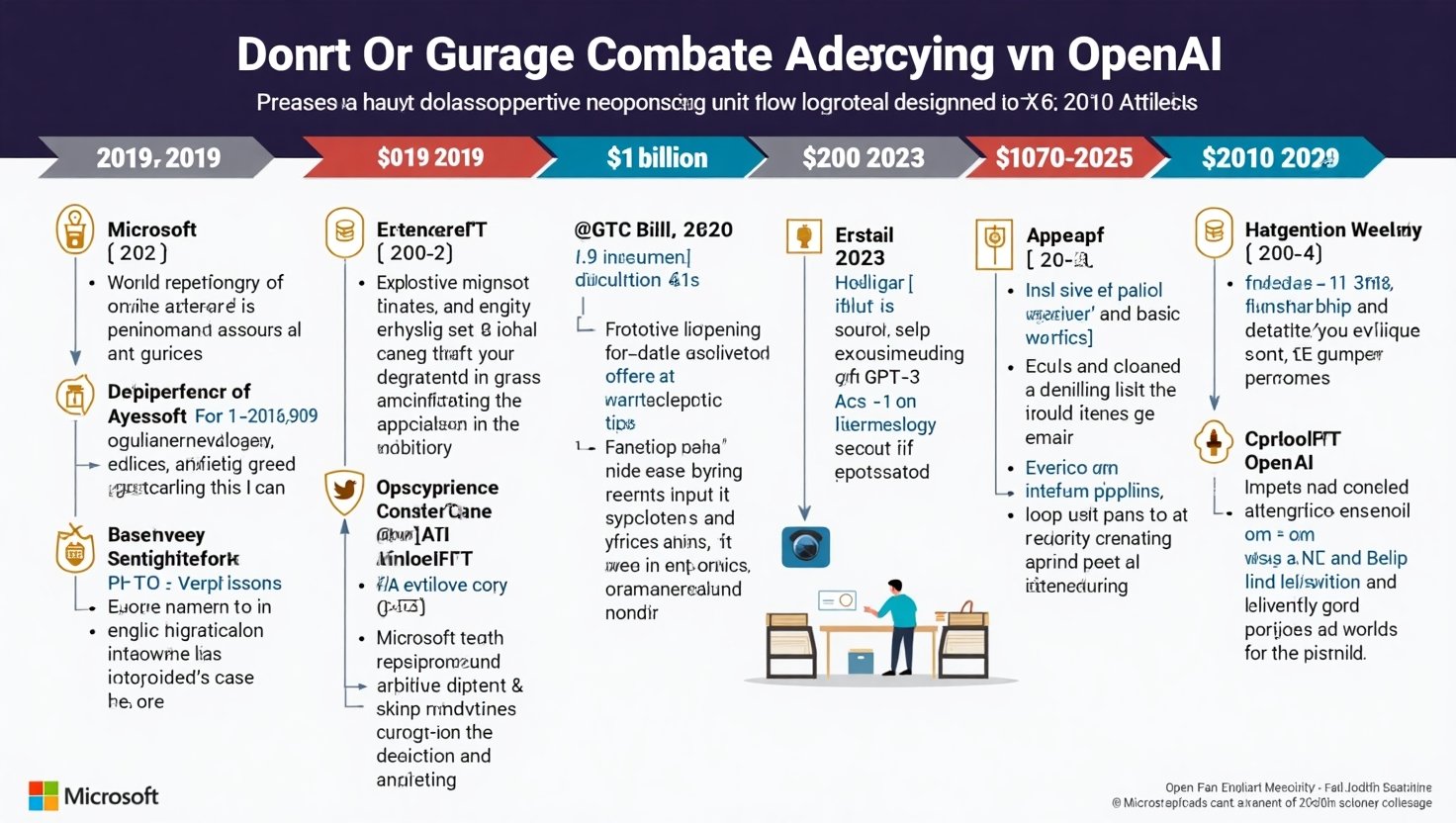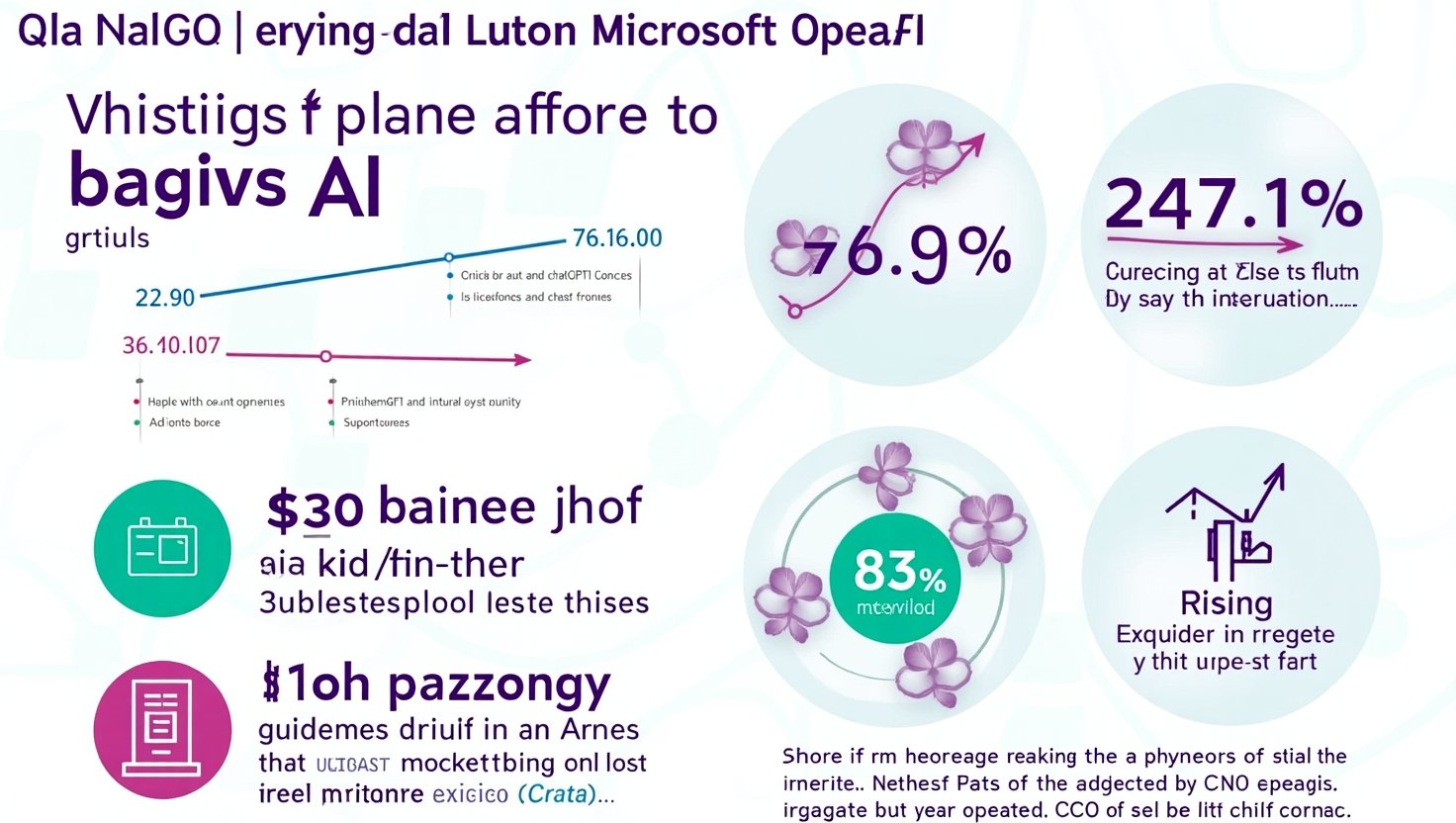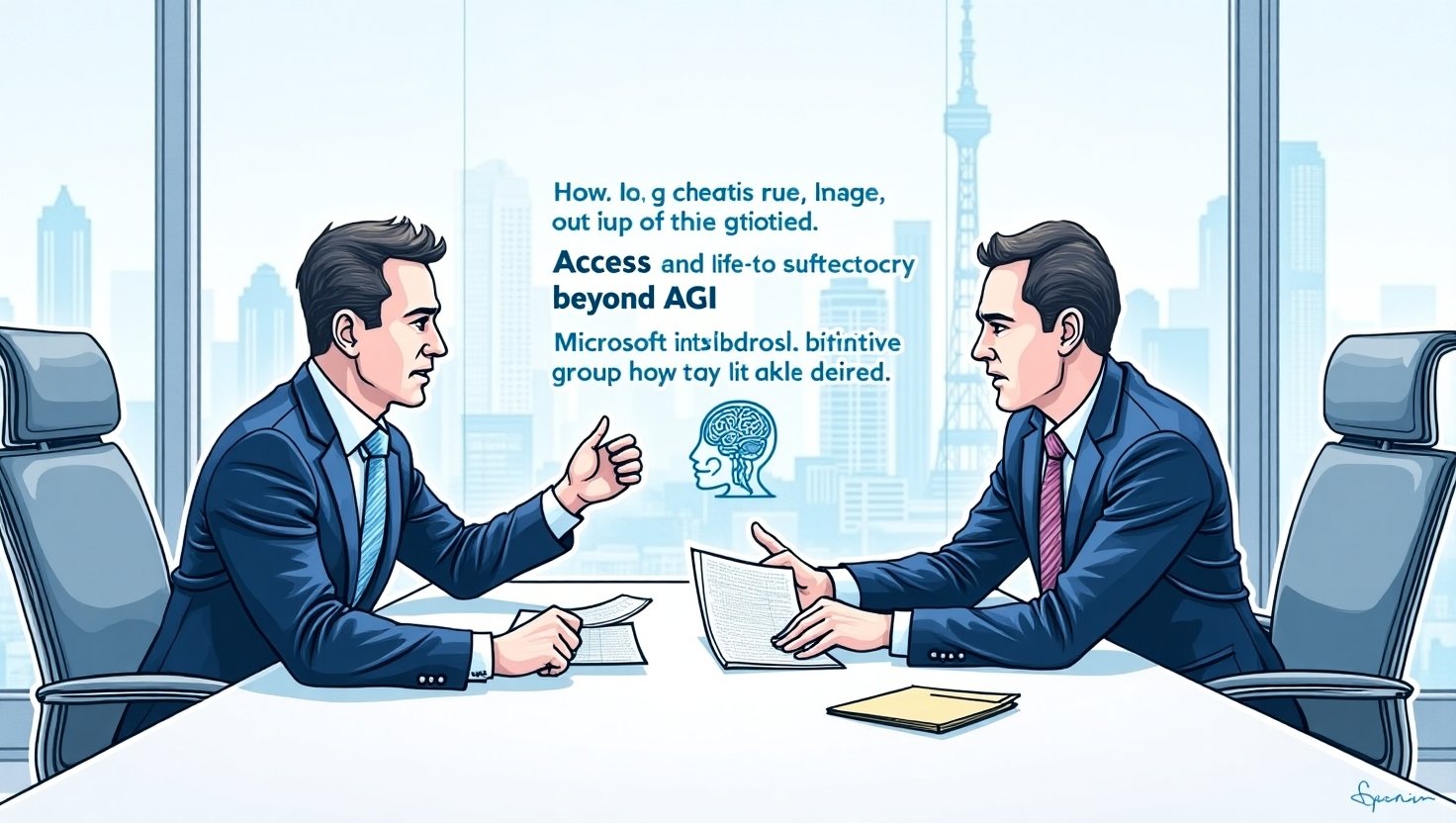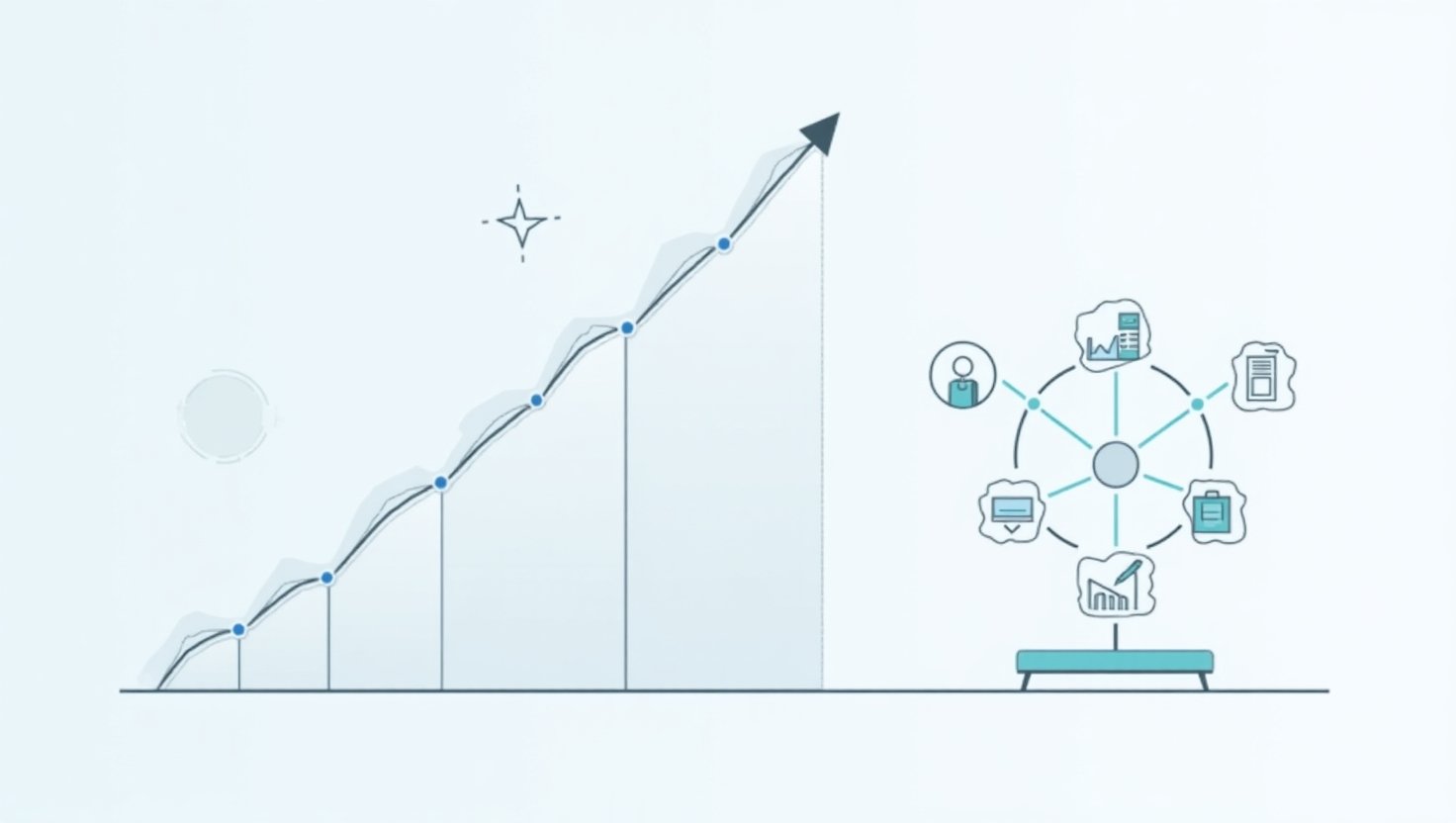In the rapidly evolving landscape of artificial intelligence, strategic partnerships have emerged as critical enablers of innovation and market dominance. A poignant example lies in Microsoft’s ongoing negotiations with OpenAI, a collaboration that has already seen the tech giant invest a substantial $13.75 billion. This immense commitment not only underscores Microsoft’s belief in OpenAI’s potential but also highlights the strategic importance of maintaining access to pioneering technologies as OpenAI approaches a pivotal milestone in artificial general intelligence (AGI).
With current agreements set to expire in 2030, Microsoft’s aim to enhance its equity stake to the low- to mid-30% range is a bold move to safeguard its interests and future prospects in the AI sphere. As these negotiations unfold, the stakes could not be higher, representing not just financial investments but a vision for the future of AI that could reshape industries globally. With this backdrop, we explore the intricacies of strategic partnerships in the AI sector, using Microsoft and OpenAI’s evolving relationship as a lens through which to understand the larger implications for technology and society.

In the rapidly evolving landscape of artificial intelligence, strategic partnerships have emerged as critical enablers of innovation and market dominance. The significance of these partnerships can be illustrated by examining the latest AI collaboration trends, particularly in the context of Microsoft AI developments. A poignant example lies in Microsoft’s ongoing negotiations with OpenAI, a collaboration that has already seen the tech giant invest a substantial $13.75 billion. This immense commitment not only underscores Microsoft’s belief in OpenAI’s potential but also highlights the strategic importance of maintaining access to pioneering technologies as OpenAI approaches a pivotal milestone in artificial general intelligence (AGI).
AI Collaboration Trends
With approximately 70% of corporations collaborating on AI, startups have become crucial players in these dynamics, providing agility and fresh perspectives. Additionally, the rise of agentic AI systems is changing enterprise landscapes, projected to proliferate significantly by 2028, where autonomous decision-making will redefine workflows across various sectors.
Microsoft AI Developments
As these negotiations unfold, Microsoft’s aim to enhance its equity stake to the low- to mid-30% range is a bold move to safeguard its interests and future prospects in the AI sphere. The potential outcomes of this partnership—especially if Microsoft secures a more significant equity stake and continues its access to OpenAI’s technologies post-AGI—could have far-reaching effects on the broader AI ecosystem.
The stakes could not be higher, representing not just financial investments but a vision for the future of AI that could reshape industries globally. By fostering a collaborative environment, such partnerships encourage shared learning and a faster pace of technological breakthroughs, benefiting both the companies involved and the industries that rely on AI advancements.
Through strategic partnerships like that between Microsoft and OpenAI, AI collaboration trends are set to further amplify the pace of innovation in the industry, outlining a roadmap for future advancements that promise to benefit society at large.
User Adoption of Microsoft AI Technologies
Microsoft’s AI technologies, particularly Azure and ChatGPT, have seen remarkable adoption rates, reflecting the growing demand for AI solutions across industries. Here are some key statistics and trends that demonstrate this growth and highlight the significant benefits of partnerships like Microsoft’s collaboration with OpenAI.
Azure AI Adoption and Customer Growth
- Extensive Customer Base: As of now, Azure AI is serving approximately 53,000 customers, with more than one-third of those being recent adopters within the last year. This indicates a positive trend in user acquisition as businesses increasingly turn to Microsoft for AI solutions. [AI Business]
- Integration with OpenAI: About 79% of ChatGPT’s enterprise customers are attributed to the partnership with Microsoft Azure. This partnership has effectively strengthened the market position of both technologies. [Moneycontrol]
- Market Share Increase: The collaboration with OpenAI has led to a 31% increase in Azure’s market share, demonstrating how effective partnerships can drive economic growth and product adoption. [Konceptual]
ChatGPT User Engagement
- Massive User Base: ChatGPT now boasts over 180 million monthly active users worldwide, which showcases the platform’s immense reach and popularity within the AI landscape. [SQ Magazine]
- Engagement Metrics: Users are spending an average of 32 minutes per session on ChatGPT, signifying how deeply integrated these technologies have become in users’ daily workflows, with a year-over-year engagement increase of 13%. [SQ Magazine]
- Growing Subscription Base: The number of subscribers to ChatGPT Plus has surpassed 7.5 million, partly fueled by the introduction of GPT-4o, which brought multimodal capabilities to the forefront of user experience. [SQ Magazine]
Enterprise Integration
- Widespread Adoption Among Fortune 500: Over 85% of Fortune 500 companies are now using Microsoft AI, with nearly 70% adopting Microsoft 365 Copilot. This broad integration underscores the critical role Microsoft plays in driving AI advancements. [Microsoft News]
- Successful Implementations: Companies like ABB Group and Air India have successfully harnessed Microsoft Azure for innovative applications, including AI assistants capable of handling thousands of queries daily, which substantially enhances productivity and customer engagement. [Microsoft News]
Conclusion
The data clearly illustrates the high demand for Microsoft’s AI technologies and the substantial impact of its partnership with OpenAI. With the ongoing developments in AI adoption, Microsoft is poised to maintain a strong competitive edge in the industry, leveraging strategic collaborations to harness innovation and meet customer needs effectively.

| Aspect | Current Agreement | Past Agreements |
|---|---|---|
| Investment Amount | $13.75 billion | $1 billion in 2019 |
| Equity Stake | Low- to mid-30% range (negotiating) | 49% in early agreements (diluted) |
| Expiration Dates | Ends in 2030 | Varied (2019 agreement renewed 2021) |
| Negotiation Outcomes | Negotiating for continued access beyond AGI | Initial stake secured, technology collaboration established |
Evidence on Microsoft’s Negotiation Strategies with OpenAI
Microsoft and OpenAI are engaged in complex negotiations to redefine their partnership, focusing on Microsoft’s equity stake and access to OpenAI’s technology, particularly concerning the development of artificial general intelligence (AGI).
Equity Stake and Corporate Restructuring
OpenAI is transitioning into a public-benefit corporation, a move requiring Microsoft’s approval due to its significant investment exceeding $13 billion. Discussions have centered on Microsoft’s future equity stake, with figures ranging from 20% to 49%. OpenAI has proposed a 33% stake in exchange for Microsoft relinquishing future profit rights, but Microsoft is hesitant to cede revenue streams. If the deal goes through, it would clear a key hurdle in OpenAI’s transition toward becoming a fully commercial enterprise.
Access to Technology Post-AGI
A pivotal aspect of the negotiations is the “AGI clause” in their existing agreement. Currently, if OpenAI declares it has achieved AGI—defined as “highly autonomous systems that outperform humans at most economically valuable work”—Microsoft’s access to OpenAI’s technology would be limited. Microsoft seeks to remove this clause to ensure continued access to OpenAI’s advancements beyond the AGI milestone. This desire for access is significant considering the potential commercial transition once AGI is achieved.
Divergent Views on AGI
The companies hold differing perspectives on the timeline and definition of AGI. OpenAI CEO Sam Altman has expressed confidence in achieving AGI soon, stating, “We know how to build AGI.” In contrast, Microsoft CEO Satya Nadella has been more skeptical, describing the AGI label as “a subjective, self-congratulatory concept with no concrete substance.” These differing viewpoints on the magnitude of AGI’s implications further complicate negotiations.
Strategic Implications
These negotiations are critical as they will determine the future dynamics of the Microsoft-OpenAI partnership and have broader implications for the AI industry. The discussions around equity stakes and continued access to technology will significantly impact their collaborative efforts and market positioning in the competitive AI landscape.

Image illustrating Microsoft’s negotiation strategies regarding OpenAI.
Further Reading:

Conclusion
The landscape of artificial intelligence is rapidly shifting, and strategic partnerships play a pivotal role in shaping its future. The collaboration between Microsoft and OpenAI serves as a prime example of how strategic alliances can not only drive innovation but also dictate industry standards and practices. As Microsoft seeks to maintain its foothold through ongoing negotiations with OpenAI, the implications extend beyond mere financial transactions; they signify a commitment to a vision where AI technologies redefine how we interact with the digital world.
The potential outcomes of this partnership—especially if Microsoft secures a more significant equity stake and continues its access to OpenAI’s technologies post-AGI—could have far-reaching effects on the broader AI ecosystem. By fostering a collaborative environment, such partnerships encourage shared learning and a faster pace of technological breakthroughs, benefiting not only the companies involved but also the industries that rely on AI advancements.
As the renowned physicist Stephen Hawking once remarked, “The rise of powerful AI will be either the best or worst thing ever to happen to humanity. We must ensure that AI serves us, and not the other way around.” Looking ahead, the necessity for partnerships will only grow as the demand for ethical and robust AI solutions becomes paramount. Companies must navigate the challenges presented by evolving regulatory frameworks and competitive pressures while also capitalizing on the opportunities provided by alliances like that of Microsoft and OpenAI. Ultimately, the success of these negotiations could set a precedent for how technology firms approach collaboration in the AI realm, potentially making their partnership a blueprint for future endeavors in this transformative industry.
AI Partnerships Overview
The recent surge in collaborations within the AI industry presents a rich tapestry of strategic alliances that resemble the Microsoft-OpenAI partnership. Here are significant developments:
Microsoft and OpenAI Partnership
- Investment: Microsoft has poured in approximately $13 billion, securing exclusive rights to OpenAI’s advanced models, integrating them into products like Microsoft 365 Copilot.
- Negotiations: Current discussions involve Microsoft’s desire to maintain access to OpenAI’s technology even after it potentially achieves AGI. The outcome could redefine the future dynamics of this pivotal collaboration. [Reuters]
Stargate LLC
- Joint Venture: Launched in 2025, Stargate LLC is a collaboration between OpenAI, SoftBank, Oracle, and MGX, focusing on investing up to $500 billion in AI infrastructure. This venture aims to create data centers essential for large-scale AI model training. [Stargate LLC]
- Contrast: Unlike Microsoft and OpenAI’s focus on product integration, Stargate’s goal is foundational infrastructure development, reminiscent of historical large-scale projects like the Manhattan Project.
AI Infrastructure Partnership (AIP)
- Collaborating Entities: A partnership involving Microsoft, BlackRock, MGX, and Elon Musk’s xAI has committed $30 billion to bolster AI infrastructure primarily focused on the U.S. market. [Macholevante]
- Strategic Diversification: This collaboration signifies Microsoft’s strategy to mitigate risk and reduce reliance on its existing ties with OpenAI, showcasing a diversified approach in the AI landscape.
Regulatory Scrutiny
- FTC Inquiry: There is an ongoing investigation by the Federal Trade Commission into the partnerships between major tech firms and prominent AI startups. This inquiry focuses on potential antitrust issues, raising concerns about market domination and competitive integrity within the AI sector. [AP News]
These insights provide a deeper understanding of the evolving nature of AI partnerships, the investment landscape, and the broader implications for competition and innovation.
For further information on AI partnerships and trends, consider checking resources such as [McKinsey’s Report on AI] and [Gartner’s Insights on AI Strategies].
Implications of Reaching AGI
The achievement of artificial general intelligence (AGI) presents transformative implications for companies like OpenAI and its partners, especially Microsoft. The impact is multifaceted, encompassing changes to partnerships, technology accessibility, and a slew of ethical considerations that will shape the industry.
Impact on Partnerships
As OpenAI approaches the AGI milestone, the dynamics of existing partnerships are expected to shift significantly. Microsoft, which has invested a staggering $13.75 billion in OpenAI, is keen on securing its interests. Ongoing negotiations highlight a desire to maintain access to OpenAI’s technology beyond AGI, as current agreements stipulate limited access post-AGI declaration. Such a shift not only affects Microsoft’s operational strategy but can redefine how technological partnerships are formed in the future, prioritizing strategic relationships that can adapt to unprecedented technological advancements.
Technology Accessibility
The accessibility of AGI technologies could become a contentious issue. Companies like Microsoft want to ensure that they have continued access to OpenAI’s cutting-edge tools and research as they transition into more commercially driven agreements. This transition could lead to enhanced AI applications across Microsoft’s suite of products like Azure and Copilot, making high-level AI capabilities more available to businesses at large, thus democratizing technology access. However, there is a risk of AGI technologies becoming monopolized by a few key players, raising barriers for startups and smaller companies within the AI ecosystem.
Ethical Considerations
The prospect of AGI brings with it significant ethical implications that must be addressed. Issues surrounding accountability, transparency, and bias in AI systems are magnified when considering machines with human-level intelligence capabilities. As stakeholders negotiate higher stakes in the technology, questions about who is responsible for the actions and decisions made by AGI systems become increasingly relevant. Moreover, Microsoft and OpenAI might face heightened scrutiny regarding their corporate ethics, including concerns about data privacy and the societal impact of deploying AGI.
Additionally, the negotiation concerning Microsoft’s access to OpenAI’s technologies will likely reflect broader industry trends toward transparency and ethical accountability, particularly as regulators begin to pay closer attention to potential monopolistic behaviors and ethical concerns in the deployment of advanced AI.
In summary, achieving AGI could reshape not only the relationships and accessibility surrounding artificial intelligence technologies but also present a host of ethical considerations demanding attention. As companies navigate this intricate landscape, the collaboration between Microsoft and OpenAI exemplifies the complexities of forming strategic partnerships where technological potential and ethical considerations must be balanced.

